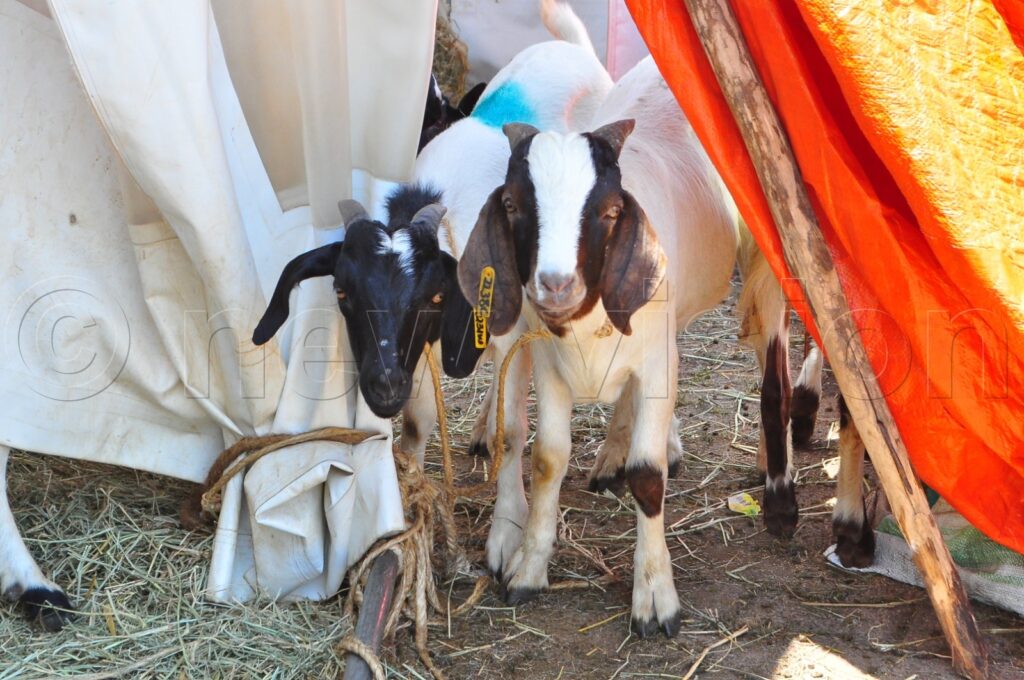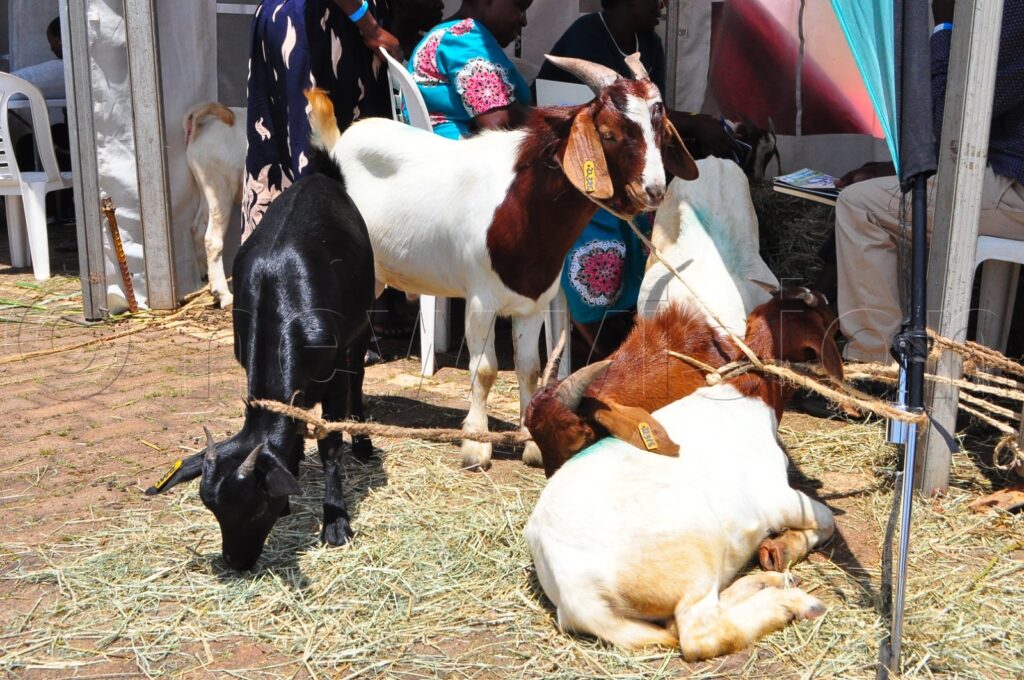By Jacky Achan
Goat farmers have been tipped to improve management of kids in their farms if they are to make profits out of goat farming. Renowned Goat farmer, Grace Bwogi, said the sure way to make profits is in knowing that each additional kid in the farm will add to the number of the herd and also the profits.
“Kids consequently increase on your off take. If the kids are well managed and grow, by six to eight months you can sell them for slaughter (meat), or breeding,” Bwogi said as she trained several enthusiasts and farmers in goat keeping at the Harvest Money Expo, taking place from February 10-12, at Kololo Ceremonial Grounds in Kampala.
“The exotic breeds can be sold at six months while the indigenous ones at eight,” she noted.
Be deliberate about birth, ensure it’s in the dry season
According to Bwogi, kids require a lot of attention and during the rainy season they will get sick a lot. They will easily get infections (disease). However, December to February are dry seasons and best for having kids. She states that a goat’s gestation period is five months. “Count backwards. If you want the goats to have kids in February, it means by September the goats should have been prepared, and by then they should have conceived,” Bwogi advises.
Introduce bucks after identifying good does
According to Bwogi after identifying about 20 good female goats (does) introduce good bucks or billies (male goats) for 42 days “the does will have conceived within that time then take the males away and prepare to have new kids in February.”
Ensure there is abundance of feeds at birth
Ensure the does or nannies (female goats) give birth when there is an abundance of feeds.
“If the food is not enough, the does will not have milk and kids will be weak without energy and could die,” Bwogi warned. Hence affecting the number of the herd and profitability in goat farming.
She said when there is an abundance of feeds, the does are able to have milk which the kids feed on to remain healthy.
Dry bedding and grazing nearby
She says the birth area should also be clean with dry beddings (dry grass) to ensure a conducive environment. “When giving birth in a large farm area, the kids may disappear and a farmer loses on the number of their herd. If the farm is large, a farmer will have to tie the doe close by the pen or loafing shade when the doe is going to give birth. In addition, give it food and assist it to birth easily.”
Choose a good breed
Edgar Muhumuza another goat farmer and trainer equally emphasised that choosing a good breed is crucial in goat-farming if the farmer is to make profits.
“If you choose a bad doe, or buck or billies (male goats) you will not get good kids.”
He advised those keen on goat farming and earning from it. Identify good mothers, that are long, and not sickly.
“If a goat is sickly chances of having a kid are little slim,” Bwogi warned.

Deworm
After selecting a good doe, deworm, Bwogi advised. “If the doe conceives it will have a kid growing and it needs blood. If its affected by many worms it will not have sufficient blood and may lose the kid or give birth to a sickly kid, which will cost so much in terms of effort and money to care for to survive, hence eating on the profit.”
Bwogi, however, warned that a farmer ought to be careful with de-wormers as some may cause miscarriage and loss.
Spray the goats
Edgar Muhumuza another goat farmer and trainer says it is important to spray the goats, “If they are sick, they will not give a farmer good kids.” He also emphasised spraying well and vaccinating well. He said farmers are to blame for drug resistance because they may overdose or under-dose the goats and never do the right treatment, “use correct spraying pumps, needles,” he advised.
Vaccinate
Bwogi advises that when the does conceive, you can start vaccination in the first month to three months to manage infections and worms. When the does give birth, the kid will be strong and have good antibodies for three months upon birth after that you can start vaccinating the kids as well.
She also advised that farmers give the goats a bitter leaf called mululuza in Luganda. Bwogi says when pregnant does require high concentration of proteins, the goats can also be given other different leaves for protein including moringa.
Bwogi added that it is important to give the does multivitamins and calcium to boost their energy, to avoid having weak kids that can barely walk.
She said the farmer must continue giving multivitamins or calcium once a week to boost energy levels of the does, it will ensure 99% chance of healthy kids being born, increasing your herd of goats and profitability. Also watch out for loss of energy, toxemia – a disease caused by the spread of bacteria and their toxins in the bloodstream – ketosis, loss of appetite, sweet smelling breath, limps, and manage them to avoid loss.
Bonding
Bwogi advised farmers to let the does bond with the kid when it gives birth.
“Don’t take the kid away. It is that bond that takes place in the first three to six hours that will enable the kid identify the mother, and even breastfeed. If they mother and kid are denied an opportunity to bond they may shun each other and in return the kid will become weak and die,” she said.
She added that when helping the does to give birth, maintain high hygiene and have the right gears, wash hands, have gloves on when pulling out the mucus. “When the kid is birthed, give it back to the mother to bond, don’t show it too much love because it may resent the mother,” she said.
Increasing the herd of goats
Bwogi stated that the practice of buying kids that are not eight months or above to increase the number of the herd is risky business because they are still in their delicate stage, prone to disease and they could even die.
“You may buy them cheap to restock your farm, but they may become stunted because they are being introduced to a new environment and they are not breastfeeding. This makes them prone to disease, including diarrhea. If you buy the kid buy even the doe,” she advised.
The theme for the 2023 Harvest Money Expo is, Farming as a Business. Post-Harvest Handling and Value Addition.






